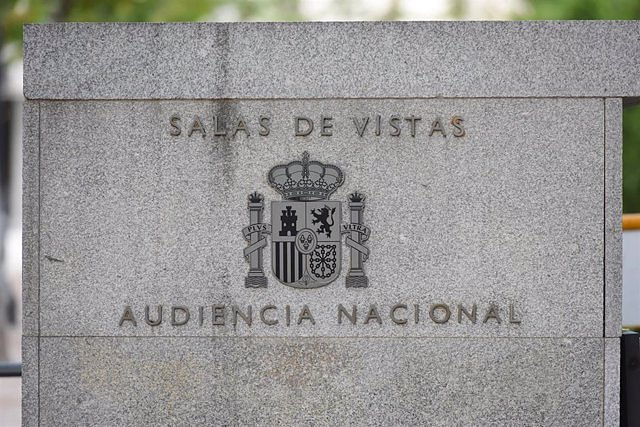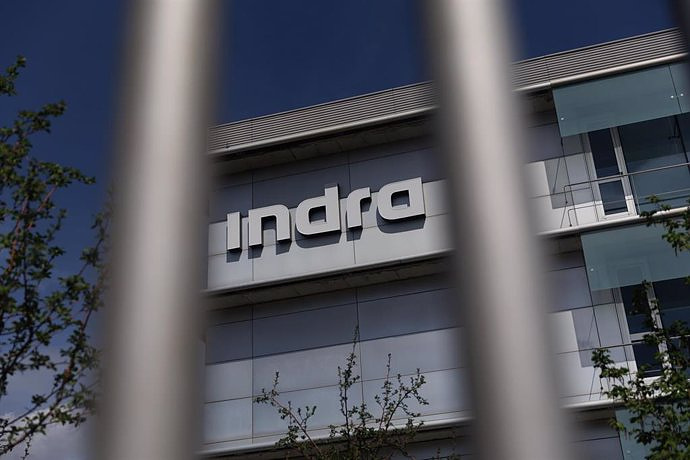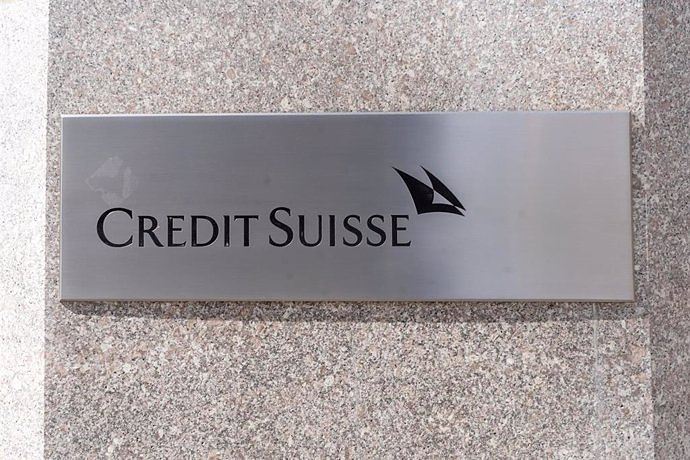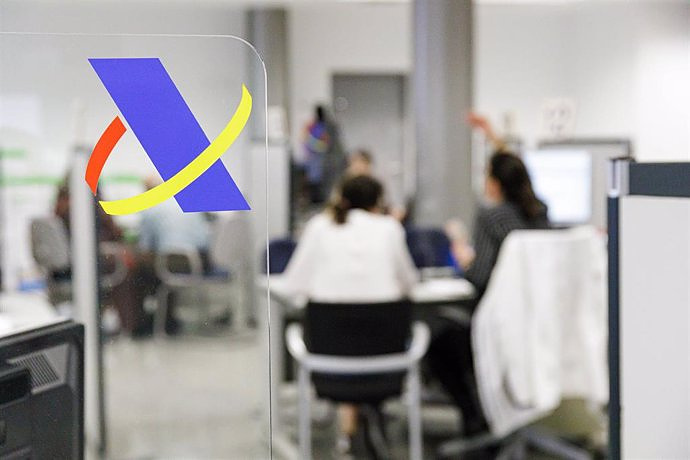Says Cryptocurrency Movement Shows Clear Scheme Used in Ponzi Schemes
MADRID, 15 Feb. (EUROPA PRESS) -
The Criminal Cybercrime Group of the Civil Guard responds to the judge investigating the cryptocurrency investment platform Arbistar for alleged pyramid fraud, which after analyzing the seized devices considers that the program they offered to their thousands of clients --'Community Bot' -- to perform online operations did not really exist.
This data is relevant in the investigation to the extent that the main defendants explained to their clients when the operation began to fail that it was all due to a problem with the operation of that algorithm or bot. Actually, the investigating judge considers that it could be a pyramid scam.
The investigations of the Civil Guard that have led to this report began at the request of the judge of the National Court José Luis Calama who wanted to know where the 'Community Bot' was registered, what were its technical characteristics and if it was feasible for it to execute all the promised to investors.
He also wanted to know who had access to that program from Arbistar and what were the causes that would have caused the collapse or failure of the system in which those investigated hide.
In their report, to which Europa Press has had access, the specialized agents point out that after the entries and records, the collection of evidence and different actions, they conclude that in reality that company did not have a specialized algorithm or program, which they called ' Community Bot', which moved investors' money to buy cryptocurrencies.
"It has not been possible to affirm the existence of the 'Community Bot' as a supposed arbitration bot or that it worked according to pre-established parameters and criteria," they indicate.
What's more, the agents indicate that when studying the movements of the analyzed cryptocurrencies "an operation and feedback operation is appreciated between the investor funds." They point out that these funds are distributed among the different levels "showing a clear scheme and structure similar to pyramidal fraud."
On the other hand, the experts explain that any application of this type must be hosted on a web server for it to work, and they point out that the seized devices do not have the necessary configuration that would allow their activity.
Looking for the origin, they indicate that the Arbistar website has been redirected over time to four IP addresses that belong to providers that offer CDN services, something that prevents knowing the final location of the server that would contain information about the source code of ' Community Bot'.
Moreover, they add that after analyzing the electronic devices received from the court, they confirm that they have not located files that contained the source code of the 'Community Bot'. "No positive result was obtained in the evidence analyzed," they explain.
In addition, the researchers point out that in Arbistar's operations they have detected inflows and outflows of funds worth 20,000 bitcoins, which as of March 2022 would be equivalent to around 710 million euros.
However, they indicate that currently the total value of what is invested by those affected by the scam cannot be calculated due to the nature of the investment in cryptocurrencies, although they point out that it would not be wrong to affirm that the amount of funds involved in that 'Community Bot ' would be more than 10,000 bitcoins.
In this sense, the Civil Guard indicates that the main person investigated, Santiago Fuentes Jover, along with Diego Felipe Fernández and Viktor Alexander Walter would be the main managers of the funds from investors in the 'Community Bot'.
But straight away they stress that "regarding the alleged cryptocurrency exchanges carried out by the Community Bot to obtain benefits from its investors, there are no indications that point to this in the cryptocurrency operations of Arbistar 2.0".
"Massive payments to exchanges such as those detailed and that could result from supposed exchanges to obtain benefits are not detected," they add. Those exchanges to which they refer are the different platforms that allow trading with cryptocurrencies to buy, sell or exchange digital assets.
To this they add that from the analysis of the movements of investors' funds, they suspect the existence of a "parallel accounting" that would hide the real information of Arbistar and some of its supposed investors.
The case broke out in the autumn of 2020 with the first complaints until, after going through the courts of Arona, in Tenerife, the investigation ended in April 2021 at the National Court.
It was last October 2022 when Calama agreed to extend the investigations for a period of six months given "the especially complex nature of the facts investigated; the large number of victims and their location throughout the national territory, as well as in numerous countries European, Asian and Latin American".
According to the court report, Arbistar promised returns of between 8 percent and 15 percent per month and paid cryptocurrency owners weekly.
"But what this plot allegedly did was use part of the money obtained from investors to deliver it to other previous investors in payment of the agreed high interest rates," the magistrate indicated.
Calama saw in these events possible crimes of aggravated fraud, criminal organization and continued crime of forgery in commercial documents, as well as money laundering, an offense that he has chosen to investigate in a separate piece so as not to hinder the main investigation.
According to the accusations, Arbistar began operating in 2019, first selling a 'software' that monitored the cryptocurrency market to notify the investor of the best time to buy or sell, with the user himself having to do the operation manually. .
Later they offered a 'bot' to which successive products linked to the cryptocurrency market were later added, which they advertised in YouTube videos and through the website.
The high returns that they guaranteed led the 200 initial investors to multiply, to the point that the national market was too small for them and they turned to foreign investors, especially in Latin America and the Arab world.
In addition, they paid a percentage to investors who brought in new clients by establishing a cascading commission system. Thus, they created 'the million club', a select group of 15 or 20 people who would have each earned more than a million euros in commissions.
The pyramid scam broke out in the fall of 2020 with the first complaints. Among those affected, the accusations detail, there are people without computer or financial knowledge who gave cash so that Arbistar could invest it.

 Exploring Cardano: Inner Workings and Advantages of this Cryptocurrency
Exploring Cardano: Inner Workings and Advantages of this Cryptocurrency Seville.- Economy.- Innova.- STSA inaugurates its new painting and sealing hangar in San Pablo, for 18 million
Seville.- Economy.- Innova.- STSA inaugurates its new painting and sealing hangar in San Pablo, for 18 million Innova.- More than 300 volunteers join the Andalucía Compromiso Digital network in one month to facilitate access to ICT
Innova.- More than 300 volunteers join the Andalucía Compromiso Digital network in one month to facilitate access to ICT Innova.-AMP.- Ayesa acquires 51% of Sadiel, which will create new technological engineering products and expand markets
Innova.-AMP.- Ayesa acquires 51% of Sadiel, which will create new technological engineering products and expand markets Mulino, dolphin of former President Martinelli, wins the presidential elections in Panama
Mulino, dolphin of former President Martinelli, wins the presidential elections in Panama The prosecutor who asked to investigate the complaint of Ayuso's partner against two prosecutors for revealing secrets is removed
The prosecutor who asked to investigate the complaint of Ayuso's partner against two prosecutors for revealing secrets is removed The PSC would win the Catalan elections with between 40 and 42 seats, followed by Junts (35-37) and ERC (21-23)
The PSC would win the Catalan elections with between 40 and 42 seats, followed by Junts (35-37) and ERC (21-23) The Israeli Army asks Palestinians to leave Rafah "immediately" in the face of an imminent offensive
The Israeli Army asks Palestinians to leave Rafah "immediately" in the face of an imminent offensive How Blockchain in being used to shape the future
How Blockchain in being used to shape the future Not just BTC and ETH: Here Are Some More Interesting Coins Worth Focusing on
Not just BTC and ETH: Here Are Some More Interesting Coins Worth Focusing on A sensor system obtains the fingerprint of essential oils and detects if they have been adulterated
A sensor system obtains the fingerprint of essential oils and detects if they have been adulterated Faraday UPV presents the 'Origin' rocket to exceed 10 km of flight: "It is the beginning of the journey to space"
Faraday UPV presents the 'Origin' rocket to exceed 10 km of flight: "It is the beginning of the journey to space" The Generalitat calls for aid worth 4 million to promote innovation projects in municipalities
The Generalitat calls for aid worth 4 million to promote innovation projects in municipalities UPV students design an app that helps improve the ventilation of homes in the face of high temperatures
UPV students design an app that helps improve the ventilation of homes in the face of high temperatures A million people demonstrate in France against Macron's pension reform
A million people demonstrate in France against Macron's pension reform Russia launches several missiles against "critical infrastructure" in the city of Zaporizhia
Russia launches several missiles against "critical infrastructure" in the city of Zaporizhia A "procession" remembers the dead of the Calabria shipwreck as bodies continue to wash up on the shore
A "procession" remembers the dead of the Calabria shipwreck as bodies continue to wash up on the shore Prison sentences handed down for three prominent Hong Kong pro-democracy activists
Prison sentences handed down for three prominent Hong Kong pro-democracy activists ETH continues to leave trading platforms, Ethereum balance on exchanges lowest in 3 years
ETH continues to leave trading platforms, Ethereum balance on exchanges lowest in 3 years Investors invest $450 million in Consensys, Ethereum incubator now valued at $7 billion
Investors invest $450 million in Consensys, Ethereum incubator now valued at $7 billion Alchemy Integrates Ethereum L2 Product Starknet to Enhance Web3 Scalability at a Price 100x Lower Than L1 Fees
Alchemy Integrates Ethereum L2 Product Starknet to Enhance Web3 Scalability at a Price 100x Lower Than L1 Fees Mining Report: Bitcoin's Electricity Consumption Declines by 25% in Q1 2022
Mining Report: Bitcoin's Electricity Consumption Declines by 25% in Q1 2022 Oil-to-Bitcoin Mining Firm Crusoe Energy Systems Raised $505 Million
Oil-to-Bitcoin Mining Firm Crusoe Energy Systems Raised $505 Million Microbt reveals the latest Bitcoin mining rigs -- Machines produce up to 126 TH/s with custom 5nm chip design
Microbt reveals the latest Bitcoin mining rigs -- Machines produce up to 126 TH/s with custom 5nm chip design Bitcoin's Mining Difficulty Hits a Lifetime High, With More Than 90% of BTC Supply Issued
Bitcoin's Mining Difficulty Hits a Lifetime High, With More Than 90% of BTC Supply Issued The Biggest Movers are Near, EOS, and RUNE during Friday's Selloff
The Biggest Movers are Near, EOS, and RUNE during Friday's Selloff Global Markets Spooked by a Hawkish Fed and Covid, Stocks and Crypto Gain After Musk Buys Twitter
Global Markets Spooked by a Hawkish Fed and Covid, Stocks and Crypto Gain After Musk Buys Twitter Bitso to offset carbon emissions from the Trading Platform's ERC20, ETH, and BTC Transactions
Bitso to offset carbon emissions from the Trading Platform's ERC20, ETH, and BTC Transactions Draftkings Announces 2022 College Hoops NFT Selection for March Madness
Draftkings Announces 2022 College Hoops NFT Selection for March Madness
























